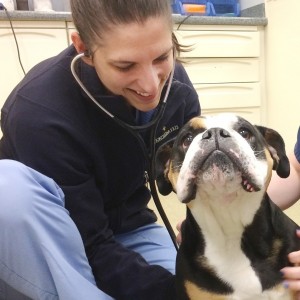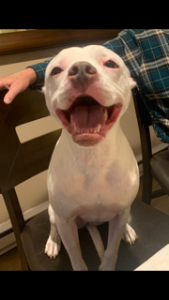-
Recent Posts
Archives
- October 2022
- August 2022
- May 2022
- March 2022
- January 2022
- December 2021
- September 2021
- July 2021
- June 2021
- May 2021
- April 2021
- February 2021
- January 2021
- November 2020
- October 2020
- September 2020
- June 2020
- April 2020
- March 2020
- February 2020
- January 2020
- December 2019
- November 2019
- October 2019
- September 2019
- June 2019
- March 2019
- February 2019
- January 2019
- December 2018
- November 2018
- October 2018
- August 2018
- July 2018
- June 2018
- May 2018
- April 2018
- March 2018
- February 2018
- January 2018
- December 2017
- November 2017
- October 2017
- September 2017
- August 2017
- July 2017
- June 2017
- May 2017
- April 2017
- March 2017
- February 2017
- January 2017
- December 2016
- November 2016
- August 2016
- July 2016
- June 2016
- May 2016
- April 2016
- March 2016
- February 2016
- January 2016
- December 2015
- November 2015
- October 2015
- September 2015
- August 2015
- July 2015
- June 2015
- May 2015
- April 2015
- March 2015
- December 2014
- June 2014
- May 2014
- April 2014
- November 2013
- September 2013
- August 2013
- July 2013
- June 2013
- May 2013
- March 2013
- January 2013
- November 2012
- October 2012
- July 2012
- December 2011
- November 2011
- October 2011
- September 2011
- August 2011
- July 2011
- June 2011
- May 2011
- April 2011
- March 2011
- February 2011
- January 2011
- December 2010
- November 2010
Categories
Cool Case Pearl
Pearl, a 2 year old English Bulldog, presented to NorthStar VETS with a chronic history of diarrhea and weight loss. In fact, she continued to lose weight despite many treatment options. To reach a definitive diagnosis, Pearl had biopsies of her gastrointestinal tract. Biopsies were consistent with a condition called inflammatory bowel disease (IBD).
Inflammatory bowel disease is a chronic inflammatory condition of the gastrointestinal tract. Although the etiology in many cases of IBD is unknown, there are several factors which may contribute to this condition including parasites, bacterial disease, immune mediated response, and food hypersensitivity, among others. Regardless of the cause, IBD can many times be controlled with more traditional treatments. These treatments include treating the bacterial or parasitic disease, specific diets, and steroids to calm the immune system.
Unfortunately, in Pearl’s case, she did not respond to the more traditional treatments. Pearl continued to lose weight and the diarrhea was persistent. At this point, Dr. Wylie and the team at NorthStar VETS looked to more nontraditional methods. This nontraditional method included a fecal transplant.A fecal transplant involves taking a donor’s stool (from a healthy dog), once they have passed the necessary screening tests, and making it into a slurry. The slurry is then transplanted into the patient’s gastrointestinal tract either across the scope via endoscopy or as a retention enema. This has been extensively used as a treatment option in human medicine, but it has been a fairly newer concept in veterinary medicine. This type of procedure can be used to help patients with inflammatory bowel disease or bacterial imbalance (dysbiosis).
In Pearl’s case, the transplant was performed via retention enema, and the donor was Dr. Wylie’s own dog, Arya! The transplant seemed to work very well. In fact, Pearl’s stool was normal that night. She did have a week where she had some diarrhea, but ever since, Pearl’s stool has been completely normal!It is important to note that even though results can be seen as quickly as 24-48 hours, some patients can take a little bit longer to respond. Others may not respond at all. Fecal transplants can be used as needed. Luckily, Pearl has only needed one transplant and has been doing great since.
Learn more about the Internal Medicine service at NorthStar VETS.
Stacie Wylie, DVM, DACVIM
 Dr. Stacey Wylie is a Pennsylvania native who received her undergraduate degree from Millersville University in 2009. She earned her veterinary degree from Michigan State University College of Veterinary Medicine in 2013. After graduation, she completed a small animal rotating internship at Oradell Animal Hospital in Paramus, NJ. She then returned to Michigan State University and completed a 3-year residency in small animal internal medicine in 2017, receiving Resident of the Year in both 2016 and 2017. Dr. Wylie is excited to be part of the NorthStar VETS team. She loves all things medicine, but her special interests include renal, hepatobiliary, gastrointestinal, and respiratory diseases as well as endoscopy and feline medicine.
Dr. Stacey Wylie is a Pennsylvania native who received her undergraduate degree from Millersville University in 2009. She earned her veterinary degree from Michigan State University College of Veterinary Medicine in 2013. After graduation, she completed a small animal rotating internship at Oradell Animal Hospital in Paramus, NJ. She then returned to Michigan State University and completed a 3-year residency in small animal internal medicine in 2017, receiving Resident of the Year in both 2016 and 2017. Dr. Wylie is excited to be part of the NorthStar VETS team. She loves all things medicine, but her special interests include renal, hepatobiliary, gastrointestinal, and respiratory diseases as well as endoscopy and feline medicine.
She currently resides with her husband, their 3 cats (Aeris, Yuffie, and Leon) and adorable pittie mix (Arya). Outside of work, she enjoys spending quality time with her family and friends, playing ice hockey and volleyball, reading, and playing video games. She is also a passionate MSU Spartan and Philadelphia Flyers fan.
This entry was posted in Pets, Veterinary Medicine and tagged fecal transplant, IBD, inflammatory bowel disease, NorthStar VETS, Stacie Wylie DVM. Bookmark the permalink.







Leave a Reply